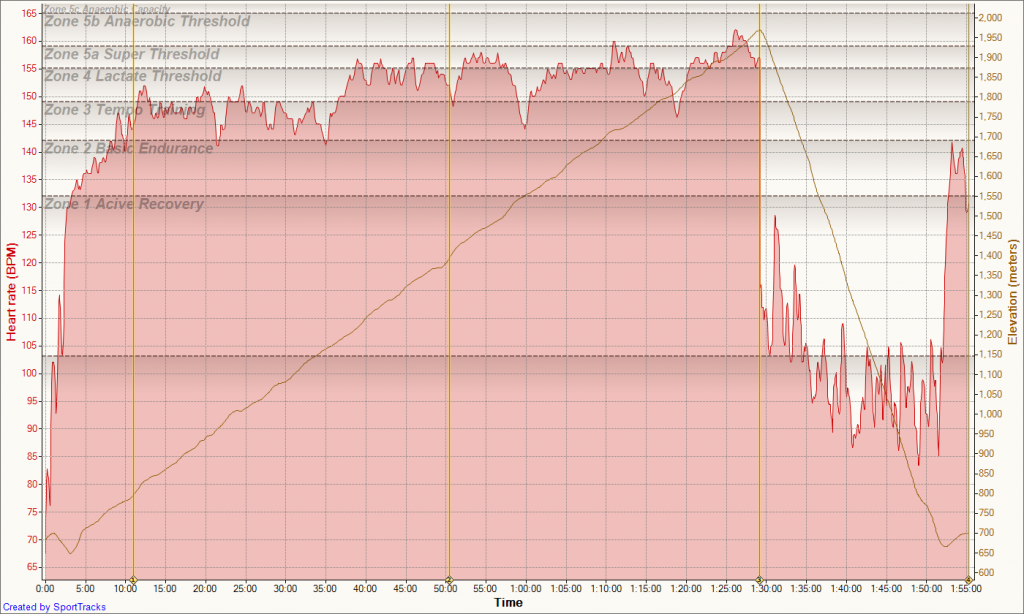Normally it takes me about four or five days to recover from a really hard event such as Sunday’s La Bourgui. For that reason I set out today, after only one day’s rest, for an easy low level recovery ride. To my astonishment my legs felt stronger than ever and so the recovery ride turned into a full on training session, climbing the 1400m up to La Plagne ski station – with surprising ease and beating my personal best for the climb by 5 minutes. What is going on?
It appears that my switch to exclusively nasal breathing has paid off. One of the benefits of nasal breathing is lower blood lactate levels, even at rest. High lactate levels indicate chemical reactions in the body that definitely slow down recovery. I’ve never experienced a recovery like this before so it seems to be a bit more than coincidence. Prior to recently adopting nasal breathing I was a chronic mouth breather and even the pattern of breathing was back to front, taking long inhalations and short exhalations – it should be the opposite.
One other very surprising thing has happened. Normally about an hour after a hard workout I feel wasted – unable to concentrate on anything for hours to come and feeling quite irritable. That problem seems to have gone. It appears that it has been caused by hyperventilating (overbreathing) and the effect that it has on blood chemistry. The most influential hormone in the body is CO2. Overbreathing lowers the levels of CO2 in the lungs too far and upsets the metabolic process and reduces circulation. In addition, breathing through the mouth eliminates another important hormone called nitric oxide. This gas is produced in the nasal passages and inhaled through the nose. Without it the body cannot exploit oxygen properly – one of the reasons for high lactate levels.
There was no apparent benefit on the day of La Bourgui race, but that is what is predicted. You feel no real benefit from nasal breathing at the time – it is the recovery effect that changes. One real benefit however is that you can’t have a heart attack through over-exertion because heart attacks are caused by hyperventilation during exercise – depriving the muscle tissue of oxygen due to lowered CO2 levels. It’s “heartening” to know this!


